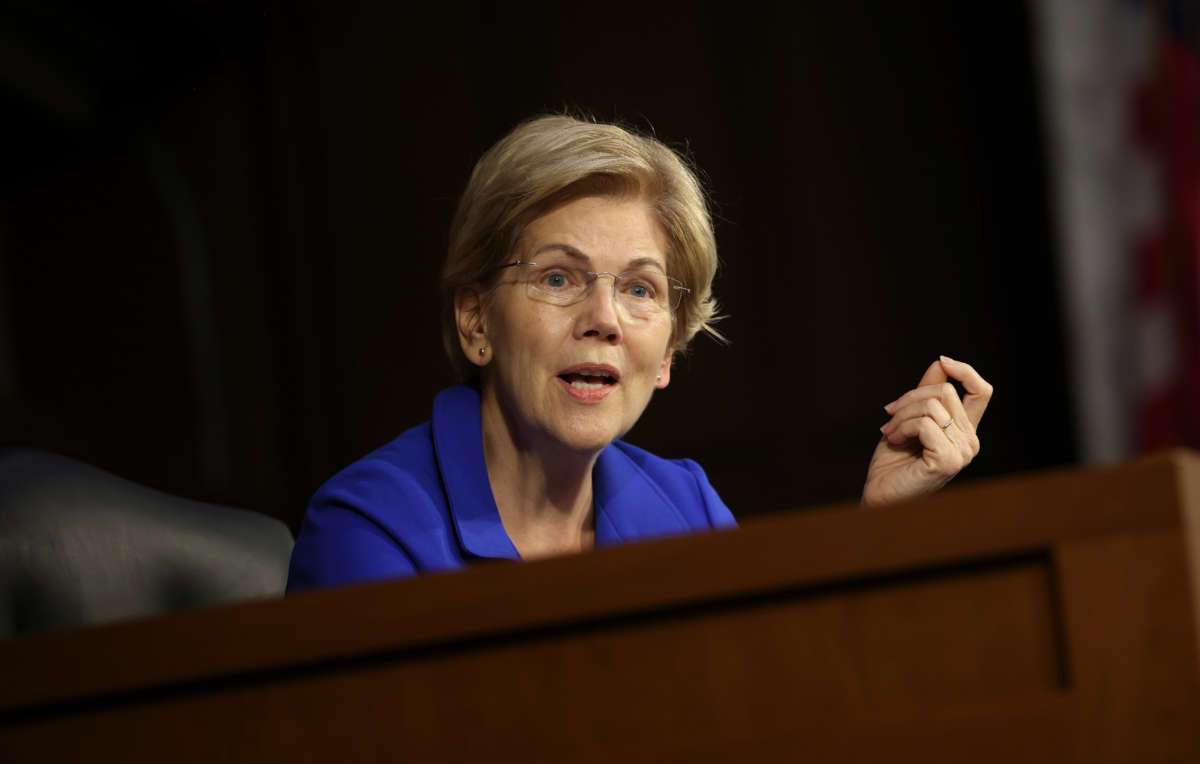Top Democrats are preparing a new tax plan that would levy a tax on billionaires as a part of their tax reform plan in the reconciliation bill.
Senate Finance Committee Chair Sen. Ron Wyden (D-Oregon) is working on a proposal that would levy a tax on investment incomes of billionaires, as well as a 15 percent minimum corporate tax to ensure that companies pay federal income taxes. The billionaire tax is a far smaller proposal than previous wealth tax proposals and would only affect the roughly 745 billionaires in the U.S. Democrats hope that it could be a crucial revenue source for the Build Back Better Act.
Importantly, the small tax proposal has the tentative support of Senators Joe Manchin (D-West Virginia) and Kyrsten Sinema (D-Arizona). Because of the two conservative Democrats — Sinema in particular — the party has been struggling to find ways to cover the cost of the reconciliation bill and appease Sinema and Manchin, who have fought hard to maintain the dismally low tax levels for corporations and the wealthy set by Republicans in 2017.
Democratic leaders are confident that the billionaire tax proposal will make it into the final bill. “We probably will have a wealth tax,” House Speaker Nancy Pelosi (D-California) said on CNN over the weekend. The Finance Committee is expected to release a more detailed version of the proposal, which is expected to raise $500 billion for the bill, on Wednesday.
Targeting billionaires may be a popular move among the caucus if only because of how narrow the tax would be. Indeed, the tax wouldn’t even be levied on the wealthiest 1 percent of Americans, but only the richest — roughly 0.0002 percent of Americans. And it wouldn’t levy a tax on their wealth overall, as progressive lawmakers have previously proposed, but only on investment incomes. It is a small enough tax that Treasury Secretary Janet Yellen said that she wouldn’t regard it as a wealth tax.
However, economists still say that the tax would be a step in the right direction, setting precedent for other future similar taxes. Economist Gabriel Zucman, who worked with Sen. Elizabeth Warren (D-Massachusetts) to craft her wealth tax proposal, told newsletter The.Ink that the tax would only apply to increases in the wealth — or what economists refer to as unrealized capital gains — rather than the entirety of the wealth.
“Billionaires own $5 trillion in wealth today, of which about 60 percent (roughly $3 trillion) corresponds to unrealized gains,” Zucman explained. “So you can think of this tax as a big one-time wealth tax on 60 percent of the wealth of billionaires, plus an ongoing annual tax on their future gains.”
Still, this will likely be insufficient to meet the demands of progressive advocates and lawmakers like Sen. Bernie Sanders (I-Vermont), who argues that billionaires shouldn’t exist while millions of Americans are struggling to pay bills and survive. A larger wealth tax could cover the entirety of the original reconciliation bill and more, rather than just a fraction of the paltry $1.9 trillion proposal before Congress now.
Warren has previously introduced a tax on the ultra-wealthy that would create a 2 percent tax on wealth over $50 million, and a 3 percent tax on wealth over $1 billion. The tax would affect the top 0.05 percent of U.S. households. Zucman and Emmanuel Saez, another economist who helped work on the bill, say it could raise over $3 trillion over the next decade — enough to cover nearly the entire $3.5 trillion price tag for the original reconciliation bill. Warren has advocated for the inclusion of the tax in the reconciliation bill, saying “we need to pass a bill that ensures that billionaires and corporations are finally paying their fair share.”
Senate Minority Leader Mitch McConnell (R-Kentucky) has come out against the proposal even before it’s been released, saying that it would penalize people who have supposedly “invested wisely” while rewarding people who have “invested poorly.”
This is a perverse way of viewing wealth, especially since billionaires do not earn their wealth in the same way as the working class does, leading leftist advocates to liken their wealth to theft from the government and workers. Investing is already a highly prohibitive activity, available largely only to the wealthy; recent data has shown that a record 89 percent of individually-owned stocks are owned by the wealthiest 10 percent of Americans.
Billionaires have grown their wealth massively during the pandemic, while the working class suffered under poor conditions and meager pay. As of earlier this month, U.S. billionaires have expanded their collective wealth by $2.1 trillion just over the past 19 months, a 70 percent increase. Meanwhile, Federal Reserve data shows that the top 1 percent of Americans have now hoarded 27 percent of the nation’s finances, more wealth than the amount owned by the entire middle class.
Join us in defending the truth before it’s too late
The future of independent journalism is uncertain, and the consequences of losing it are too grave to ignore. We have hours left to raise the $12,0000 still needed to ensure Truthout remains safe, strong, and free. Every dollar raised goes directly toward the costs of producing news you can trust.
Please give what you can — because by supporting us with a tax-deductible donation, you’re not just preserving a source of news, you’re helping to safeguard what’s left of our democracy.
